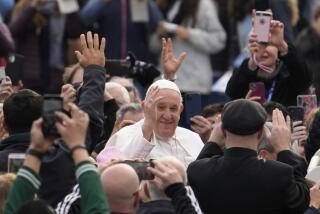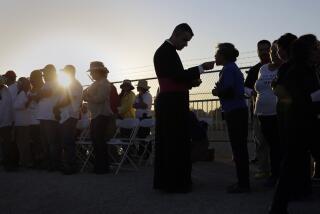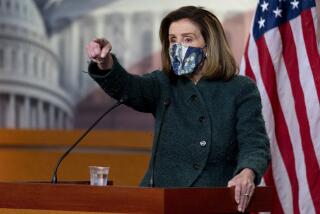40% of American Catholics Would Support Latin Mass
WASHINGTON — A Gallup poll paid for by a group of rebel Roman Catholics found that 40% of those surveyed would support using the old Tridentine Latin Mass as an alternative to current liturgy, a spokesman said this week.
Father Ronald J. Ringrose of St. Athanasius parish, Vienna, Va., said the poll also showed that 53% would attend such rites if the services were permitted and held at convenient times and places.
There are 52 million Roman Catholics in the United States.
Ringrose, who is no longer recognized as a priest by the church, heads one of about 50 traditionalist parishes in the United States that continue to use the superseded Tridentine rite.
The Tridentine Mass, which dates from the mid-16th Century, was banned after the Second Vatican Council in the mid-1960s and replaced by a new Communion liturgy called the New Order Mass, which is usually but not always celebrated in the vernacular.
Traditionalists such as Ringrose believe that the New Order Mass is “not doctrinally sound” because it is “inexact” and “ambiguous” on such traditional positions as the sacrificial nature of the Mass and the real presence of Christ on the altar during the Eucharist.
In October, in a move widely regarded as an effort at reconciliation with rebel Archbishop Marcel Lefebvre of France, Pope John Paul II gave strictly conditioned permission for bishops to authorize limited use of the Tridentine rite.
Ringrose said, however, that traditionalist groups could not accept the restrictions, including requirements they accept the new liturgy as well and that the Tridentine Mass could not be used in parishes.
He made it clear that for the groups he represents, the issue is not the use of Latin, which has never been banned, but the content of the New Order Mass, which he said “can be interpreted in a Protestant sense as well as a Catholic sense.”
While there was no heresy in the New Order Mass, he said, “the danger is in its ambiguity” and “that makes it even more insidious.”
Ringrose said the two-question survey, which cost about $3,000 and was supported by about a dozen of the various Tridentine groups, was based on a random sample of 1,500 people of whom 400 were Catholics.
More to Read
Sign up for Essential California
The most important California stories and recommendations in your inbox every morning.
You may occasionally receive promotional content from the Los Angeles Times.










